
 |
| (File Photo) |
As the Spring Festival holiday approaches, experts have urged Beijing Zoo to be more aware of the harm that camera flash can do to animals.
The zoo said the harm is limited and they have done what they could to restrict its use.
At the zoo Tuesday, there was no staff on duty inside the halls to stop tourists from using cameras with flashes. In the nocturnal animal hall, there are no signs saying "no photos" or "no flash."
Some tourists said that they understand the request to not use flash, but complained the hall was too dark to see clearly.
"I think we may need to use a flashlight to see the animals in the darkness," said a tourist, surnamed Li.
Almost half of the tourists were seen using camera flash in the nocturnal exhibit.
Ye Mingxia, media officer of the zoo, said that they have warning signs saying "no flash" or "no knocking on the glass" in the indoor animal halls.
"Apart from the notices, our staff in the halls will persuade tourists not to use flash while photographing the animals," she said, noting that the flash would disturb the animals but would not cause particular negative effects like loss of appetite.
Ye also noted that there is no way they could force tourists to not use flash.
An anonymous animal keeper said that keeping on top of this problem is difficult because of the limited staff at the zoo.
"We have to patrol from one hall to another for inspection instead," she said.
Ni Hemin, professor of animal science from China Agriculture University, said that the zoo has underestimated the effect of flash light on wild animals.
"Nocturnal animals like lemurs and civet cats are used to dim light and are very sensitive to strong lights," he said.
"These animals might have syndromes like hormone or appetite problems if they are often exposed to flash light," he said.
Beijing Zoo should ban tourists from taking cameras into these halls, said Ni.

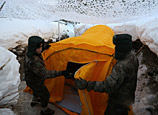
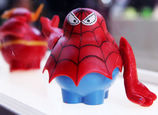
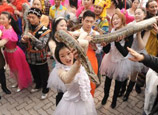
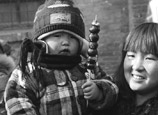
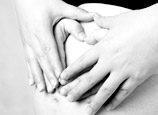
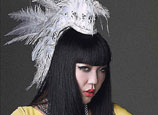
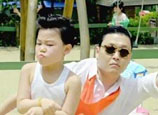
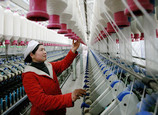
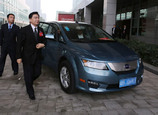






 Most feared Spring Festival questions
Most feared Spring Festival questions


![]()
